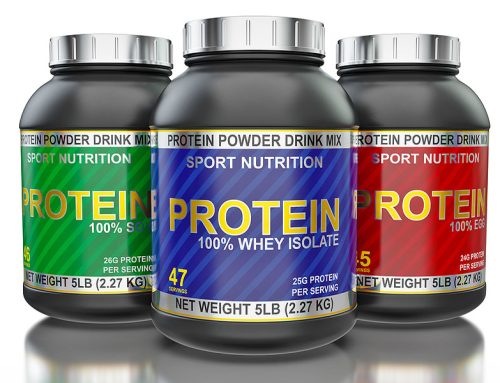For many years, people have been confused about eggs. Will the cholesterol in eggs increase the cholesterol in your blood? Are the yolks bad for your heart? Should you only eat egg whites? This article will explain what modern science tells us about eggs and health.

Why Eggs Were Once Considered Unhealthy
Back in the 1940s, scientists noticed that people who ate foods high in cholesterol often had high cholesterol in their blood and more heart problems. This led to a simplistic conclusion: eating cholesterol must cause high cholesterol in your body.
By 1968, the American Heart Association (AHA) recommended limiting cholesterol to 300 milligrams per day. Since one large egg contains 186 milligrams of cholesterol, eating just two eggs would put you over this limit. This advice led many people to avoid egg yolks completely or strictly limit how many they ate.
But there was a problem with this advice. It was based on correlation (things happening together), not causation (one thing causing another). As one egg researcher put it: “Correlation does not equal causation.”
How Science Changed Its Mind About Eggs
Over time, more research showed that the relationship between eating cholesterol and having high cholesterol in your blood wasn’t so simple:
- In 1982, the famous Framingham study found no connection between eating eggs and having high blood cholesterol or heart disease.
- In 2002, the AHA removed its advice to limit dietary cholesterol to 300mg per day.
- In 2013, the AHA announced there wasn’t enough evidence to show that eating less cholesterol reduces the “bad” LDL cholesterol in your blood.
- By 2015, the Dietary Guidelines for Americans dropped the recommendation to limit dietary cholesterol.
Why the Confusion About Eggs?
The misunderstanding happened for several reasons:
First, people confused cholesterol in food with cholesterol in the bloodstream. Also, there are different types of blood cholesterol – high-density lipoproteins (HDL) which is called “good” cholesterol, and low-density lipoproteins (LDL) which is called “bad” cholesterol. LDL can build up in your arteries and increase risk of heart attacks and strokes.
When people eat whole eggs, their total cholesterol might go up, but studies found it was often the “good” HDL cholesterol that increased. In some cases, both HDL and LDL went up by similar amounts, which doesn’t necessarily increase heart disease risk.
Second, our bodies are smart. When most people eat more cholesterol, their bodies make less of their own cholesterol to balance things out.
Third, what you eat with eggs (and in the rest of your diet) matters a lot. In some places, eggs are often eaten with foods high in saturated fat like bacon and sausage, which can affect heart health. In other places, like parts of Asia, eggs are typically eaten with vegetables.
Finally, lifestyle and genetics play important roles too. People who smoke or have certain genetic conditions may respond differently to dietary cholesterol.
Recent Research Supports Eating Whole Eggs
Modern research shows that for most people, eating eggs as part of a healthy diet doesn’t lead to higher blood cholesterol or heart disease:
A 2018 study published in the American Journal of Clinical Nutrition found that people with diabetes or pre-diabetes who ate 12 eggs per week for three months showed no negative changes in heart health markers compared to those who ate only 2 eggs per week.
A 2023 review by Carter and colleagues concluded: “The best evidence for cardiovascular disease prevention supports focusing on a change in the overall dietary pattern rather than removing a single food such as eggs.”
Another major review in 2023 by Myers and colleagues looked at 129 studies on eggs and health. They suggested that eating 7 to 14 eggs per week could be beneficial for most people as part of a varied diet.
Not Everyone Responds the Same Way to Eggs
Research from the University of Connecticut found that about 70% of people have little or no change in blood cholesterol even when eating large amounts of dietary cholesterol (they’re called “hyporesponders”).
However, about 30% of people do experience a rise in blood cholesterol after eating eggs (they’re called “hyperresponders”). Even in these people, if both “good” HDL and “bad” LDL cholesterol rise by similar amounts, the overall risk for heart disease might not increase.
But some caution is still in order. A handful of people have genetic conditions, like hypercholesterolemia, where their bodies can’t remove LDL from the blood effectively. These individuals may need to be more careful about eating eggs in large quantities.
This is probably why I couldn’t find a single evidence-based researcher or health professional who endorsed eating more than one to two eggs per day to the whole general population.
Anyone in doubt about eating very large quantities of whole eggs should simply get their blood work done. If it’s in good shape, then whatever quantity of eggs they’re eating is probably okay.
The Nutritional Benefits of Whole Eggs
One thing is unanimous in the research: eggs are incredibly nutritious:
Complete protein: One large egg contains about 6.3 grams of high-quality protein with all essential amino acids. The protein is split almost evenly between the yolk (2.8 grams) and the white (3.5 grams).
High digestibility: Eggs have a 97% digestibility value, even higher than meat and dairy products.
Rich in vitamins and minerals: Eggs provide choline, folate, vitamin D, iodine, and B vitamins. Many people don’t get enough vitamin D, and eggs are one of the few foods that naturally contain it.
Eye-healthy antioxidants: Egg yolks contain lutein and zeaxanthin, powerful antioxidants that help protect your eyes.
Cell membrane support: Lecithin, found in egg yolks, is an important component of all cell membranes in your body.
Specialty Eggs: Are They Worth It?
Some eggs are marketed as being higher in omega-3 fatty acids. These come from hens fed special diets with flaxseed, fish oil, or algae. While these eggs do have more omega-3s than regular eggs, the difference isn’t huge.
According to Dr. Artemis Simopolous, eggs from free-ranging hens can contain up to 20 times more omega-3 fatty acids than standard supermarket eggs. The ratio of omega-6 to omega-3 fatty acids in free-range eggs can be about 1:1, compared to 20:1 in regular supermarket eggs.
However, if you want to increase your omega-3 intake, eating fatty fish like salmon is more efficient than relying on omega-3 eggs.
How Many Eggs Can You Safely Eat?
Research suggests that for most healthy people, eating 1-2 eggs daily doesn’t increase heart disease risk. The 2023 review by Myers and colleagues suggested that 7-14 eggs per week can be beneficial as part of a balanced diet.
But when deciding how many eggs to eat, consider your overall diet and calorie needs:
- One large egg contains 75 calories and 5 grams of fat
- An egg white contains just 17 calories with no fat
This is why many bodybuilders and fitness enthusiasts use a lot of egg whites with moderate amounts of whole eggs – not because they think yolks are unhealthy, but because the calories add up quickly if you eat many whole eggs.
Interestingly, studies show that eating eggs for breakfast can help you feel fuller and eat fewer calories later in the day, which might help with weight management. However, these studies typically only used 1-2 eggs per day.
The Bottom Line on Eggs
Current science shows that for most people, eating one or two whole eggs daily doesn’t negatively affect heart health. Eggs are highly nutritious and can be part of a healthy diet.
However, how your body responds to dietary cholesterol depends on your genes, overall diet, and lifestyle. Some people are more sensitive to dietary cholesterol than others.
Before making big changes to your diet, it’s always best to talk with your doctor or a registered dietitian, especially if you have concerns about cholesterol or heart health. They can help you understand how eggs fit into your personal health picture.
Remember again, that what you eat with your eggs matters too. Eggs served with vegetables and nutritious carbs like oatmeal make a healthier meal than eggs with processed meats like bacon and sausage and processed carbs like croissants and sugary cereals.
-Tom Venuto
www.BurnTheFat.com







By my calculations I eat about 31 whole eggs a week. 3 fried for every breakfast and 2 boiled in my salad 5 days a week. I’m going to believe this is okay.
Hi Marty, thanks for posting! I love lots of eggs too. Based on all the recent research I read, I’m going to believe it’s ok as well in the context of the rest of your diet being healthy and low in processed foods and saturated fat. It’s always prudent to keep an eye on blood work though. There are genetics involved and it does appear to be a small percentage of the population who are hyper-responders to dietary cholesterol.
My 17 year old son has a stellar weightbuilding routine and is trying to gain weight so he can build muscle mass. He has very little (or no) body fat. He likes to eat 5 to 7 eggs daily. Is that too much?
Rod, that’s awesome your son is into serious lifting at 17. At that age I don’t think it’s any issue, and neither are the extra calories. For a lean teen to gain muscle, it requires at lot of calories so the calories are in a surplus. A lot of bodybuilders scale back the whole eggs and use more egg whites during cutting phases when calories are restricted. When I was in m early 20s I experimented with a dozen whole eggs a day! (Or even more), and I wasn’t worried. Only saw positive effects, but back then I didn’t get my blood work done. People older especially with risk factors should monitor their blood work to see if any diet changes have any effect. Cheers.